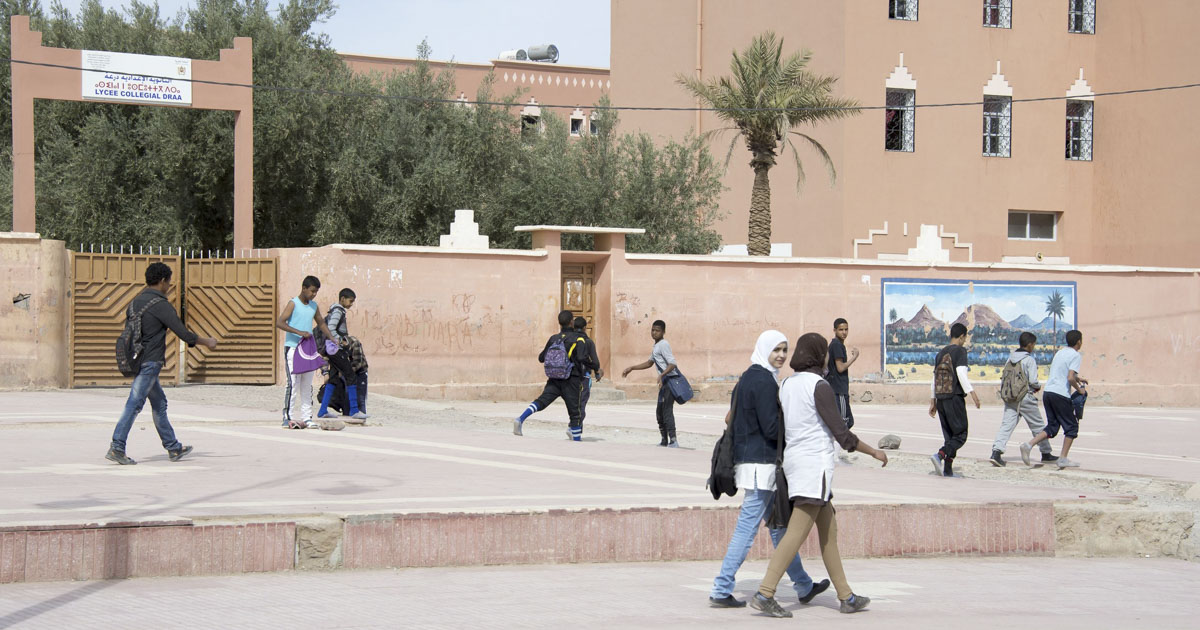Evaluation Design Report for the Secondary Education Activity of the Morocco Education & Training Project
Morocco: Secondary Education Activity for Employability Project
Prepared for:
Millennium Challenge Corporation
- The study’s evaluation design will use a mixed-methods approach to assess the effects of the the Morocco Secondary Education Activity and will include (1) a randomized controlled trial (RCT) of the school-based subactivity and (2) an implementation study of all three subactivities (the school-based subactivity, the strengthening of the national education policy environment and information systems subactivity and the subactivity related to developing a system to operate and maintain school infrastructure).
- The RCT of the school-based subactivity will provide rigorous estimates of the causal impact of the intervention on student outcomes such as enrollment and learning, teacher practices and attendance, and the quality of school infrastructure. Data will be collected through a longitudinal student survey, a teacher survey, a school director survey, and a school infrastructure checklist at baseline and in the follow-up period.
- The qualitative study will describe how change occurred through the school-based intervention and it will help us understand the implementation process and the potential effects of the other two subactivities. Data will be collected through focus groups with students, parents, and teachers, in-depth interviews with school directors, key informant interviews with Ministry of Education officials, and desk reviews of program documents.
- We will also conduct a cost-benefit analysis to calculate the economic rate of return (ERR) for the interventions.
The Millennium Challenge Corporation (MCC) and the Government of Morocco (GoM) signed the Morocco Employability and Land Compact in November 2015. The Compact entered into force in June 2017 and consists of two projects – The Education and Training for Employability and the Land Productivity Projects. The Education and Training for Employability project consists of two Activities: The Morocco Secondary Education Activity and a Workforce Development Activity. Mathematica is evaluating the Secondary education Activity that seeks to improve the quality and workplace relevance of secondary education through several interventions, which begin in 2017 and will continue through 2022. These interventions include (1) school-based interventions, such as developing a more autonomous and performance-based school management, revising the secondary education pedagogy to help develop transferable skills in students, and improving the quality of infrastructure in secondary schools; (2) strengthening the national education policy environment and information systems to use assessment results to drive educational decision making; and (3) developing a system to operate and maintain school infrastructure nationwide.
MCC has contracted with Mathematica to conduct an independent evaluation of the Morocco Secondary Education Activity. The evaluation design will use a mixed-methods approach to assess the effects of the activity and will include (1) a randomized controlled trial (RCT) of the school-based subactivity and (2) an implementation study of all three subactivities. The RCT will provide rigorous estimates of the causal impact of the school-based subactivity on student outcomes such as enrollment and learning; teacher practices and attendance; and the quality of school infrastructure. We will quantify impacts by randomly assigning which schools receive the intervention and by comparing outcomes in schools assigned to receive the intervention versus schools assigned to continue as usual. We will conduct a longitudinal student survey, teacher survey, school director survey, and a school infrastructure checklist at baseline and in the follow-up period. We will supplement the RCT with a qualitative study that describes how change occurred through the school-based intervention. The analysis will include in-depth qualitative data to help us understand changes in teaching practices; how school leadership and management contributed to improved learning at the school; how autonomy and accountability might have improved in participating schools; and the role that parents and the community play in implementing the school improvement plans. We will rely on focus groups with students, parents, and teachers and in-depth interviews with school directors and Ministry of Education. The qualitative study will also seek to understand the implementation process and the potential effects of the other two subactivities, which will be implemented in secondary schools nationwide.
How do you apply evidence?
Take our quick four-question survey to help us curate evidence and insights that serve you.
Take our survey
